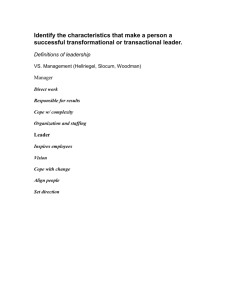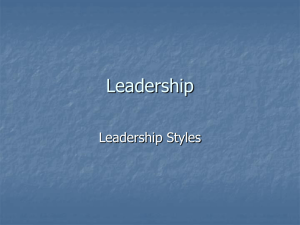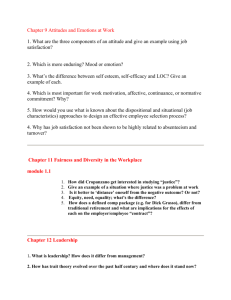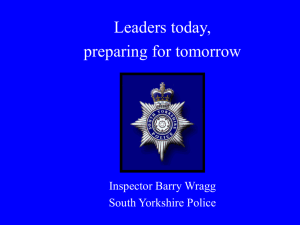here - Solace
advertisement
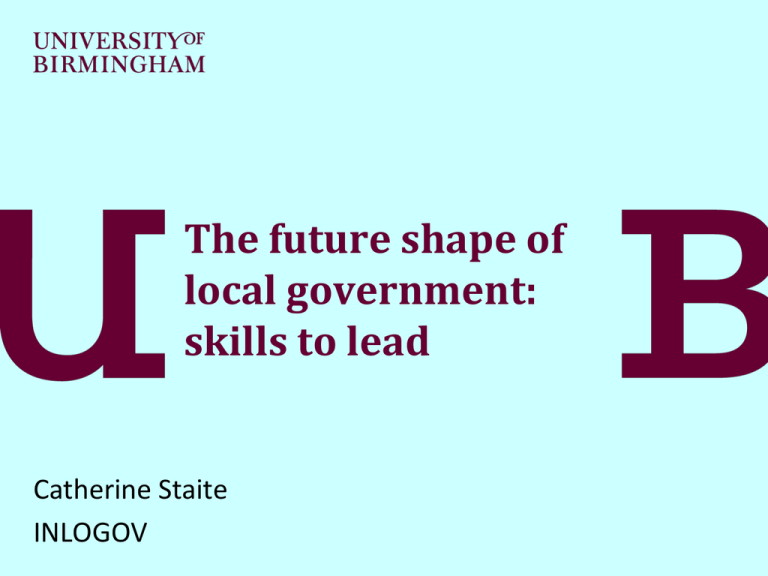
The future shape of local government: skills to lead Catherine Staite INLOGOV The practice of leadership Leadership is a journey Framing your challenges can help you match your leadership to your situation and context Useful models; – Situational and contextual leadership – Leading change – From transactional to transformational – Developing your personal style Framing your challenges A frame is: “a set of internalised concepts and values that allow us to accord meaning to unfolding events and new information.” Key points on frames Frames trump facts Don’t just negate, reframe Once you have established a new frame and it has become widely accepted, ideas that were previously unthinkable become “common sense” Situational Leadership THE FOUR LEADERSHIP STYLES SUPPORTIVE BEHAVIOUR High High Supportive and Low Directive Behaviour High Directive and High Supportive Behaviour S3 S4 S1 Low Supportive and Low Directive Behaviour Low S2 High Directive and Low Supportive Behaviour DIRECTIVE BEHAVIOUR Ken Blanchard High Leading in a culture of change ENTHUSIASM Leaders Moral Purpose Understanding Change Coherence Making Relationship Building Knowledge Creation & Sharing Teams Commitment Results More good things happen; fewer bad things happen. Michael Fullan Transformational Leadership Charismatic: highly esteemed role models – followers strive to emulate; align others around a vision, common purpose and mission Inspirational: provides meaning and optimism about the mission and its attainability Intellectually stimulating: encourages followers to question basic assumptions and to consider problems from new and unique perspectives Individually considerate: works with followers, diagnosing their needs, transcends their self-interests, enhances their expectations and develops their potential What works – and why? High Amount of change needed High Transformational Low Transactional High Transformational High Transactional Low Transformational Low Transactional Low Transformational High Transactional Low Source: Kotter, J. A Force for Change (1990). Free Press Complexity of organisation High Transformational leadership: does it really work? Transformational Leadership has a significantly greater impact than Transactional Leadership on a variety of subjective and objective outcome measures, including: job satisfaction, motivation, and performance of followers lower levels of stress and burnout amongst staff more collaborative, innovative, harmonious teams financial performance of organisations performance in public sector organisations Source: Bass, B.M. & Avolio, B.J., (1996) Postscripts: Recent Developments for Improving Organisational Effectiveness, Sage Emotional intelligence: using self-awareness to lead better SELF RECOGNITION & AWARENESS MANAGEMENT & REGULATION OTHERS SELF AWARENESS SOCIAL AWARENESS SELF MANAGEMENT RELATIONSHIP MANAGEMENT Effective Contextual Leadership A new style of leadership Charm Creativity Courage Leadership
